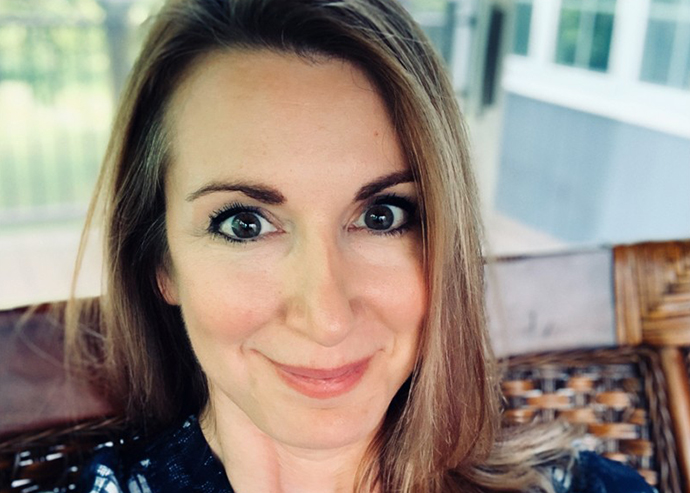
Certificate in Organizational Anthropology, University of Pennsylvania ‘22
Master of Arts in Writing and Publishing, Emerson College
Bachelor of Arts in Cultural Anthropology, University of Rochester
Although Michele Hart studied anthropology as an undergraduate, her professional path took her into marketing and communications. In the midst of a successful career, and now informed by practical work experiences, Michele sought out another academic program in human culture, this time focused on the workplace. The Penn LPS Online Certificate in Organizational Anthropology was the perfect fit. "I think anthropological concepts are really valuable in the business world," she says.
Early in her career, Michele was working in the marketing communications department at a high-tech firm during the dot-com boom. She was gaining valuable experience that would serve her burgeoning career. She even met her husband there. However, when the tech bubble burst in the early 2000s, Michele was ready to move on. "I remember getting laid off on the fifth round of layoffs. At that point, I was so happy to leave because the environment was awful," she recalls.
From there, Michele worked as a freelancer, got married, and took some time off to have the first of her three children. She returned to the workforce part time at first, managing marketing and communications for a former client's small association. One of the association's board members asked her to do the same for another nonprofit. "Then that happened again," she says, "and before I knew it, I had started an association management business." For the next 14 years, Michele enjoyed working with various professionals and businesses, experiencing all kinds of organizational cultures.
When her youngest went off to kindergarten, Michele decided to return to an in-house career at a nonprofit. "I was there for about four years. It started out really well, but then the culture of the organization really started to wear me down," she remembers. She made some headway in improving the team culture, drafting a core value statement, and working on the strategic plan, but ultimately chose to leave for a new opportunity. Though she landed in a healthier environment, she wanted to further understand what can make a positive or negative workplace. A quick internet search brought her to the Penn LPS Online Certificate in Organizational Anthropology.
"I chose organizational anthropology because I was so interested in workplace culture," she says. "I wasn't planning to completely change careers; this was related to what I'm currently doing. I'm in business and I can apply these concepts right away," she says. And the online delivery and flexible schedule Penn LPS Online offered would allow Michele to keep balance in her life. "I liked that it could be done remotely and that I could do it at my own pace." She finished the four-course requirement over two years. "My current situation with three kids, a full-time job, two dogs, and volunteering—I found the program completely doable."
Through her coursework, Michele was able to pinpoint organizational weaknesses that had added to the negative climate at some of her past jobs. "I wrote a paper about one of the organizations, and was able to take a big-picture view and see how their structured silos caused issues," she says. For example, she explored how well-intentioned position titles may, in practice, be inauthentic and mislead applicants, ultimately resulting in job dissatisfaction. She also considered how practical attire for certain staff and business attire for others can create a perceived and unfair hierarchy. "I think it was those cultural imbalances that caused a lot of issues and made some staff feel underappreciated and undervalued," she recalls.
Though Michele works at an organization with a supportive and collaborative culture now, she still finds opportunities to put her classroom lessons into practice. A course in building influence across cultural boundaries, for example, helped Michele successfully propose a new project. "The tools the class gave me elevated my pitch and made me a little more thoughtful about describing how it will impact the organization's mission and revenue goals."
She also started a staff newsletter to improve organizational cohesion after she discovered a communication weakness between specialized divisions. "I ran a survey last year and it turned out that even though everybody knows who each other is in our small company, they weren't clear on how their work was impacting other parts of the business," she explains. "The most important part of that newsletter is not just to let everybody know what's going on, but to share how important and vital every role is to our success."
Reflecting on the certificate, Michele says, "I liked the anthropological approach because it looked at all facets of the organization—not just leadership, but human behavior down to yourself and how you might be contributing to an organizational culture."
Michele will continue to contribute to her workplace by developing and reinforcing a healthy and functional work culture with the concepts she learned at Penn.
